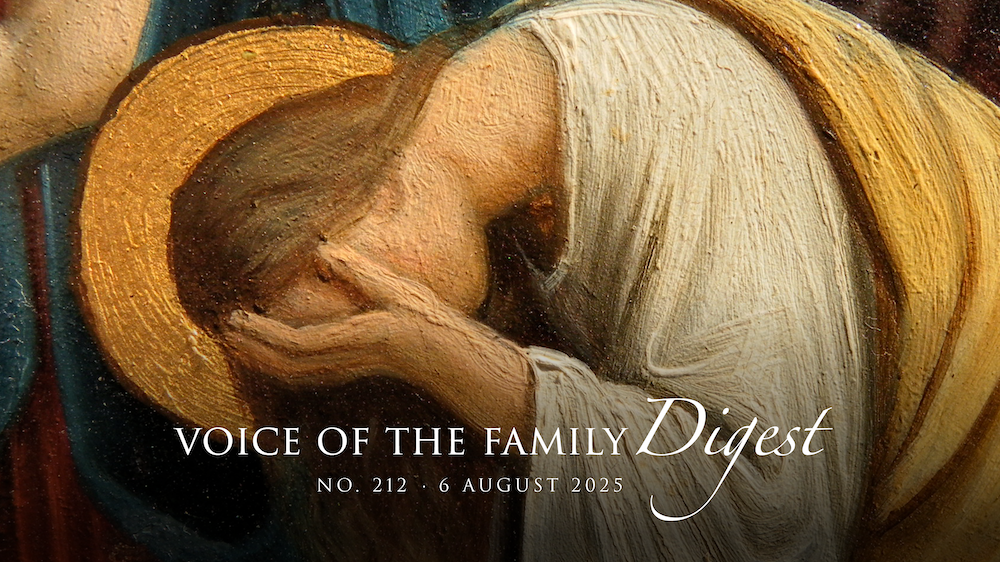The gift of tears: sermon on the ninth Sunday after Pentecost
By a Dominican Friar | 6 August 2025

“When Jesus drew near to Jerusalem, seeing the city, he wept over it.”
All the actions of our Lord that are recorded in the holy gospels are in some way an example for us. This Sunday, we hear how He approached Jerusalem on Palm Sunday, and wept over it, because He knew that it would soon be destroyed. Why, you may ask, do we read this gospel this Sunday, a long time after Palm Sunday? It’s because the city and its temple were destroyed at about this time of year, the middle of the summer, forty years after Christ’s resurrection. Notice what He says to the city as He looks at it from the Mount of Olives: “Thou hast not known the time of thy visitation”; in other words, “You did not receive Me as your messiah, although you had so many signs.”
Since our Lord’s actions are examples, this implies that there is a place for sorrow and even for tears in our Christian life. We are not obliged to be stoics, never showing any emotion. But just as Christ, at the beginning of the last week of His mortal life, wept over Jerusalem because it had blinded itself, and closed itself off from God’s grace, what we are to grieve for most of all is sin, which separates us from God our Father.
As you know, sorrow for sin has got a special name: “contrition”. This word comes from Latin, and it literally means “grinding down”. We don’t use the word contrition about any other kind of sorrow, not even a great one, such as a person would feel over the death of a spouse or a child. We use the word “contrition” or “grinding down” only of sorrow for sin. Why is this?
Imagine yourselves, in this life, as like people who live in a cave. This cave has an entrance, which lets in some light. The light it lets in is the light of conscience, by which we see which actions are good and which are evil. Our sins are like rocks in the entrance to the cave, which shut out light and hinder our escape.
Now, what must someone in this situation do if he wants to be free? Is it enough for him to refrain from sinning any more? No — he must first break down the rocks that block his way. This is exactly what contrition does; it slowly grinds away sin, until nothing is left. Of course, there are other things that we also have to do to deal with sin, like going to confession and doing penance. But all these other things will be of value only insofar as they derive from contrition in the heart.
But note that contrition doesn’t arise in us spontaneously. This is what distinguishes it from other kinds of sorrow. It’s only natural to feel sorry if we’ve done something wrong that makes us look bad in the eyes of other people. A coward, for example, naturally feels ashamed if other people see his cowardice. But to feel sorry for sin because it separates us from God is beyond the power of human nature alone.
So, how do we gain this very valuable kind of sorrow? It’s a gift from God, and so, like other divine gifts, contrition is something to be prayed for.
In fact, if you look in the missal — the book that the priest uses when he says Mass — you might be surprised to find at the back, among the other optional prayers that can be used on certain days, a series of petitions called “for the gift of tears”. Can we really ask God to give us tears? Yes — not just any kind of tears; not sentimental ones, nor desperate ones, still less angry ones, as when we read of hell as a place where there is “weeping and gnashing of teeth”. But we can pray for tears of contrition. So, the missal compares our hearts to the rock in the desert which Moses struck with his staff, thus bringing forth water for the people:
“Almighty and most merciful God, Who for thy thirsting people didst draw a fountain of living water from the rock; draw from our hearts tears of sorrow that we may be able to mourn over our sins, and so merit to receive the forgiveness of them from thy mercy.”
A model of the grace of contrition is St Mary Magdalen, patroness of penitents. According to one tradition she spent the years after Christ’s resurrection as an anchoress — that is, a female hermit — mourning over her sins: yet not gloomily or despairingly, but peacefully, growing ever more closely united to Christ in love. May she gain the same grace for us.
